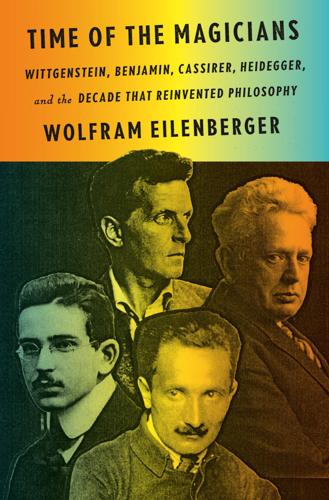
Time of the Magicians: Wittgenstein, Benjamin, Cassirer, Heidegger, and the Decade That Reinvented Philosophy
by
Wolfram Eilenberger
Published 14 Sep 2020
See also Duma Revolution (1905) Safranski, Rüdiger, 192–93 Salomon, Gottfried, 21, 193–95, 222 Saxl, Fritz, 128, 131–32, 180, 182, 245 Saxony, 185 Scheler, Max, 15, 103–4, 319–20 Schelling, Friedrich Wilhelm Joseph, 24, 35 Schiller, Friedrich, 332 schizophrenia, 179–80 Schlick, Moritz, 270–73, 275, 321, 352–55 Schoenflies, Arthur Moritz, 193–94 scholasticism, 244 Scholem, Gershom (Gerhard) and Benjamin’s Arcades Project, 291–92 Benjamin’s correspondence with, 33–34, 89–90, 92–94, 199–200, 209–10, 291–93, 336, 345–46, 350–51 and Benjamin’s military service evasion, 31–32 and Benjamin’s plans for journal, 138 and Benjamin’s relationship with Lacis, 26–27, 225 emigration to Palestine, 195, 223 and grant paid to Benjamin, 346–47 Schön, Erich, 143 Schopenhauer, Arthur, 275 Schultz, Franz, 194, 195, 209 scientific worldview and Cassirer’s Individual and the Cosmos, 242–50 and Heidegger’s phenomenology, 178 and influence of Wittgenstein’s Tractatus, 171–72 and Kepler’s ellipses, 241–42 and logical analysis, 41 and mythical thinking, 136–37 and physics, 14, 108, 110, 279 and Wittgenstein’s Tractatus, 158, 159 See also Enlightenment era and ideals; natural laws and science Scientific Worldview: The Vienna Circle, The, 352–53 Sein questions, 52. See also Dasein “Self-Assertion of the German University, The” (Heidegger), 363 senses and sensory experience, 59, 107, 109, 123.
…
So far, then, Cassirer’s project is on good Kantian, and therefore also idealistic, ground. But his “philosophy of symbolic forms” heightens an idea of Kant’s. Namely the idea that there are many different ways of giving structure, form, and sense to the world we live in. Kant’s fundamental world-creating categories essentially take their cues from the scientific worldview of Newtonian physics. That was the world whose “conditions of possibility” had initially to be grasped and described. Cassirer takes his epistemological impulse for opening his project to a diversity of essentially equal forms of access to the world from the linguistic studies of Wilhelm von Humboldt.
…
With similar suspicion Wittgenstein may have heard, by the time of his stay in Vienna on holiday in August 1923, that his Tractatus was now also beginning to inspire seminars and discussion groups (later known as the “Vienna Circle”) at the city’s university. The Vienna group wanted to save and heal society by adhering to a strictly scientific view of the world. This certainly did not correspond to Wittgenstein’s approach, since he saw the purely scientific worldview as yet another wrong track that his era had placed itself upon, and one that was, in its supposedly value-free and enlightened clarity, based on particularly stubborn misunderstandings. However painful it might have been to go through that damned book again, proposition by proposition, there were some things that needed clarifying.
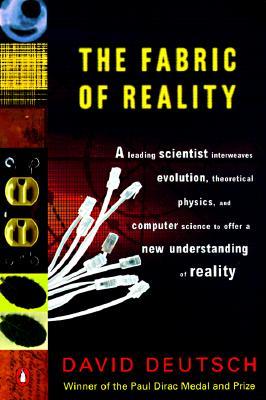
The Fabric of Reality
by
David Deutsch
Published 31 Mar 2012
Is there an underlying, master-preference that controls preference changes? If so, it could not itself be changed, and utilitarianism would degenerate into the genetic theory of morality discussed above. What, then, is the relationship of moral values to the particular scientific world-view I am advocating in this book? I can at least argue that there is no fundamental obstacle to formulating one. The problem with all previous 'scientific world-views' was that they had hierarchical explanatory structures. Just as it is impossible, within such a structure, to 'justify' scientific theories as being true, so one cannot justify a course of action as being right (because then, how would one justify the structure as a whole as being right?).
…
On the face of it, Bishop Berkeley would seem to have a point, that virtual reality is a token of the coarseness of human faculties - that its feasibility should warn us of inherent limitations on the capacity of human beings to understand the physical world. Virtual-reality rendering might seem to fall into the same philosophical category as illusions, false trails and coincidences, for these {102} loo are phenomena which seem to show us something real but actually mislead us. We have seen that the scientific world-view can accommodate - indeed, expects - the existence of highly misleading phenomena. It is par excellence the world-view that can accommodate both human fallibility and external sources of error. Nevertheless, misleading phenomena are basically unwelcome. Except for their curiosity value, or when we learn from them why we are misled, they are things we try to avoid and would rather do without.
…
Since faith in revealed truth had been found to be incompatible with rationality (which requires an openness to criticism), many people nevertheless yearned for an ultimate foundation to things in which they could believe. If they did not yet have a reductive 'theory of everything' to believe in, then at least they aspired to one. It was taken for granted that a reductionist hierarchy of sciences, based on subatomic physics, was integral to the scientific world-view, and so it was criticized only by pseudo-scientists and others who rebelled against science itself. Thus, by the time I learned biology in school, the status of that subject had changed to the opposite of what Aristotle thought was obvious. Life was not considered to be fundamental at all.
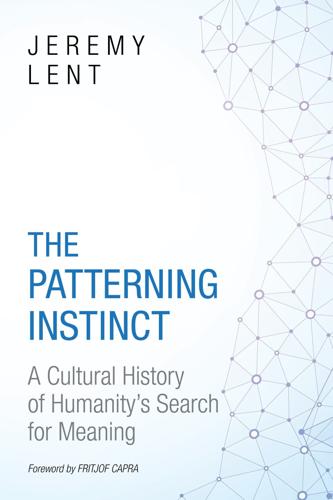
The Patterning Instinct: A Cultural History of Humanity's Search for Meaning
by
Jeremy Lent
Published 22 May 2017
The unbroken connection of modern India with its past extends beyond the wandering sadhu; it's rooted deep in the shared cognition of the Indian people, many of whom regularly discuss the details of legends thousands of years old and continue to worship gods with hymns composed even earlier.2 When the Indo-European horsemen thundered from their original homeland into Greece and India thousands of years ago, they brought with them a shared set of ideas about the cosmos. What was it that led one tradition to create the “Greek miracle,” laying the foundation for the modern scientific worldview, while another became known for its spiritual investigation into humanity's place in the cosmos? As we explore this question, we'll identify some surprising elements both traditions continued to hold in common. Understanding their common foundations, as we'll see, allows insights into each of these two great cultures that would otherwise remain concealed.
…
The dualistic chasm remained impassable as ever, only now the dichotomy of soul and body was reborn into the modern age as a dichotomy of mind and body. “The substance,” he wrote, “in which thought immediately resides is called mind. I use the term ‘mind’ rather than soul since the word ‘soul’ is ambiguous and is often applied to something corporeal.”38 With the rise of the scientific worldview in modern times, the notion of “soul” has been segregated into purely theological territory, while the idea of “mind” has become ubiquitous, reinforcing the same dualistic split in the conception of a human being that was established by the Platonic-inspired church fathers. Our Cartesian Legacy It is almost impossible to overstate the profound impact Descartes has had on modern cognition.
…
It can relate to something as simple as a pen, the organizing principles of which are human-made, and equally well be applied to the unfathomably complex organization of the human brain.23 The Modern Relevance of Li When Needham recognized what the Neo-Confucians meant by the relationship between li and qi, he immediately saw its congruity with the modern scientific worldview. Several decades earlier, Einstein had transformed physics with his famous equation, E = mc2, which states that the energy of a body is equal to its mass times the speed of light squared. Energy and matter were recognized as transmutable. The traditional Chinese notion of qi as an all-pervasive force of energy and matter could now be related to the findings of modern science.24 Needham was not alone in noticing the confluence of traditional Chinese thought with the new physics.
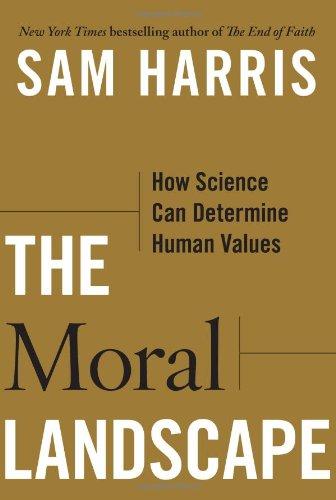
The Moral Landscape: How Science Can Determine Human Values
by
Sam Harris
Published 5 Oct 2010
Nevertheless, many scientists seem to worry that subjecting people’s religious beliefs to criticism will start a war of ideas that science cannot win. I believe that they are wrong. More important, I am confident that we will eventually have no choice in the matter. Zero-sum conflicts have a way of becoming explicit. Here is our situation: if the basic claims of religion are true, the scientific worldview is so blinkered and susceptible to supernatural modification as to be rendered nearly ridiculous; if the basic claims of religion are false, most people are profoundly confused about the nature of reality, confounded by irrational hopes and fears, and tending to waste precious time and attention—often with tragic results.
…
So, I think, would many scientists. And yet, as we have seen, most scientists have been trained to think that such judgments are mere expressions of cultural bias—and, thus, unscientific in principle. Very few of us seem willing to admit that such simple, moral truths increasingly fall within the scope of our scientific worldview. Greene articulates the prevailing skepticism quite well: Moral judgment is, for the most part, driven not by moral reasoning, but by moral intuitions of an emotional nature. Our capacity for moral judgment is a complex evolutionary adaptation to an intensely social life. We are, in fact, so well adapted to making moral judgments that our making them is, from our point of view, rather easy, a part of “common sense.”
…
Taking humanity as a whole, I am quite certain that there is a greater consensus that cruelty is wrong (a common moral precept) than the passage of time varies with velocity (special relativity) or that humans and lobsters share a common ancestor (evolution). Should we doubt whether there is a “fact of the matter” with respect to these physical and biological truth claims? Does the general ignorance about the special theory of relativity or the pervasive disinclination of Americans to accept the scientific consensus on evolution put our scientific worldview, even slightly, in question?17 Greene notes that it is often difficult to get people to agree about moral truth, or to even get an individual to agree with himself in different contexts. These tensions lead him to the following conclusion: [M]oral theorizing fails because our intuitions do not reflect a coherent set of moral truths and were not designed by natural selection or anything else to behave as if they were … If you want to make sense of your moral sense, turn to biology, psychology, and sociology—not normative ethics.18 This objection to moral realism may seem reasonable, until one notices that it can be applied, with the same leveling effect, to any domain of human knowledge.
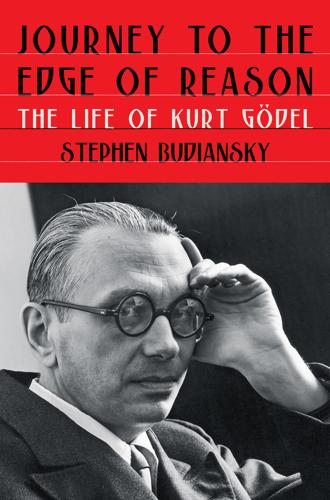
Journey to the Edge of Reason: The Life of Kurt Gödel
by
Stephen Budiansky
Published 10 May 2021
But the new group was distinctive for its strongly analytical cast. “All members of the Circle had a background of scientific research,” said Karl Menger, “took the scientific method seriously, and in fact expected to obtain a consistent Weltbild—picture of the world—through what in the Circle was called die wissenschaftliche Weltauffassung,” the scientific worldview. The group was distinctive, too, for being one of the few places in the still very hierarchical world of Austrian higher education in which members of three generations, men and women, Austrians and foreign visitors, met and debated on equal terms.4 Café Josephinum, which Gödel lived above in 1927–28 By the time Gödel joined the circle, Schlick had begun leading the discussions, which took place in what Menger called “a rather dingy room” next to Schlick’s office on the ground floor of the Mathematics and Physics Institute.
…
Neurath had been the chief instigator of a public offshoot of the Circle founded the year before, the Ernst Mach Society, which launched a series of popular books, pamphlets, and public lectures.18 In his manifesto he claimed for Schlick’s group the name “The Vienna Circle,” declaring, “The scientific worldview serves life, and life embraces it,” along with other slogans pledging to free the proletariat from the oppression of metaphysics, theology, and capitalism. “All of us in the Circle were strongly interested in social and political progress,” recalled Carnap. “Most of us, myself included, were socialists.”
…
It was his duty, he said, to oppose the atheistic and destructive ideas of positivism, through which Schlick had insidiously tried to destroy the deeply held religious beliefs that he had grown up with. At his trial, Nelböck declared to the judge, “For me, Schlick’s behavior expressed the utter lack of scruples of his so-called scientific worldview.” As the judge summarized Nelböck’s testimony at his trial, his former professor had “robbed him of his love, of his creed, and of his means of livelihood.” Sentenced to ten years in prison, Nelböck immediately became a martyr of the anti-Semitic and anti-liberal right, particularly at the university.

Braiding Sweetgrass
by
Robin Wall Kimmerer
A lens that brings the material world into focus but blurs the spiritual is the lens of a people made of wood. It is not more data that we need for our transformation to people of corn, but more wisdom. While science could be a source of and repository for knowledge, the scientific worldview is all too often an enemy of ecological compassion. It is important in thinking about this lens to separate two ideas that are too often synonymous in the mind of the public: the practice of science and the scientific worldview that it feeds. Science is the process of revealing the world through rational inquiry. The practice of doing real science brings the questioner into an unparalleled intimacy with nature fraught with wonder and creativity as we try to comprehend the mysteries of the more-than-human world.
…
Trying to understand the life of another being or another system so unlike our own is often humbling and, for many scientists, is a deeply spiritual pursuit. Contrasting with this is the scientific worldview, in which a culture uses the process of interpreting science in a cultural context that uses science and technology to reinforce reductionist, materialist economic and political agendas. I maintain that the destructive lens of the people made of wood is not science itself, but the lens of the scientific worldview, the illusion of dominance and control, the separation of knowledge from responsibility. I dream of a world guided by a lens of stories rooted in the revelations of science and framed with an indigenous worldview—stories in which matter and spirit are both given voice.
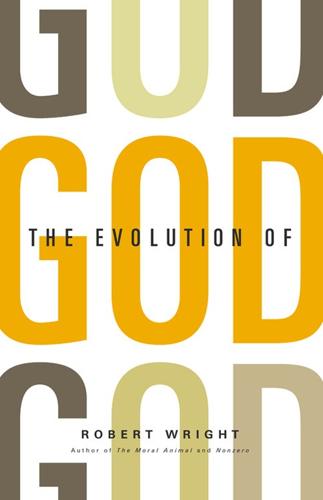
The Evolution of God
by
Robert Wright
Published 8 Jun 2009
Baal, as a fertility god, was sometimes called the Lord of Rain and Dew. 3 Yahweh, in contrast, was the Lord of nothing in particular—and of everything; he was the ultimate source of nature’s power, but he didn’t micromanage it; he was as much chairman of the board as chief executive. This kind of god is often described as more modern than pagan, Baal-like gods, more compatible with a scientific worldview. After all, looking for mechanistic laws of nature wouldn’t make much sense if, as the pagans of Elijah’s day believed, nature was animated by the ever changing moods of various gods. There’s more room for scientific principles to hold sway if there’s just one god, sitting somewhere above the fray—capable of intervening on special occasions, maybe, but typically presiding over a universe of lawful regularity.
…
This conception of gods had been falling out of favor among Greek philosophers since Xenophanes, five centuries before Philo’s time, noted its arbitrariness. If horses and cattle did theology, he had asserted, “horses would draw the forms of the gods like horses, and cattle like cattle.” 6 Meanwhile, a frequently interventionist god—a god that deployed plagues, storms, and bolts of fire to keep humanity on track—didn’t coexist easily with a scientific worldview. That worldview wouldn’t mature for nearly two millennia after Philo, but its animating spirit, and its aspiration to universal explanation, had emerged centuries earlier, by the time of Aristotle. Philo handily dispatched the Bible’s anthropomorphic depiction of God by calling it allegory. 7 And as for what God was like if he wasn’t like a human: though Philo seems to have conceived of God as in some sense personal, 8 his bottom line was that “no name nor utterance nor conception of any sort is adequate.” 9 But jettisoning an anthropomorphic and often interventionist god posed a problem.
…
But it’s important to understand that this is where a lot of the disagreement lies: Is there a transcendent moral order or is there not? If there is, then people who take electrons seriously would seem hard pressed to deny the legitimacy of trying to conceive the source of that order; especially if you stress to them that the source of the moral order isn’t necessarily inconsistent with a scientific worldview—it needn’t be some kind of gratuitously interventionist anthropomorphic God or some mystical “force” that trumps the laws of the universe; maybe the laws of the universe, even when operating with normal regularity, are subordinate to the purpose, because they were designed with the purpose in mind.
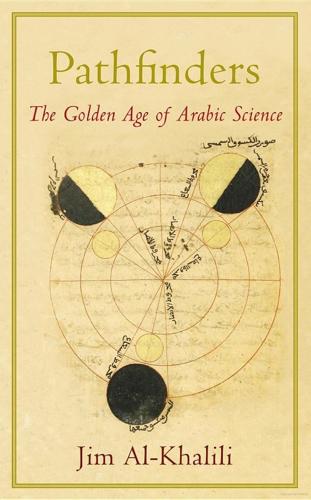
Pathfinders: The Golden Age of Arabic Science
by
Jim Al-Khalili
Published 28 Sep 2010
Later Islamic scholars such as the polymath al-Bīrūni in the eleventh century dismiss this story as highly unlikely, claiming that a more likely scenario was that the Sindhind was a translation of a Persian version already in use in Gondēshāpūr. The only likely truth in the story is therefore that the Siddhanta did indeed pass through two translations on its way to the Arabs. It is not until well into the ninth century that we see among Islamic scientists and philosophers an emerging confidence in a new rational and scientific world-view that led many to criticize astrology as not having a place alongside true sciences like mathematics and astronomy. Some, however, continued to dabble in it, including the mathematician al-Khwārizmi. Others, even centuries later, would recognize its importance in convincing their less-enlightened rulers to continue funding their astronomical projects.
…
This is rather simplistic and has contributed to the notion that the decline of the golden age coincided with a backlash from conservative Islam against Mu’tazilism. While this hostile response certainly took place, it had little to do with waning of the bright light of scientific progress in the Islamic world centuries later. Conversely, many Muslims around the world have viewed Mu’tazilism and, by extension, the rationalist scientific world-view with a degree of hostility. This has been either due to their fundamentalist, or literalist, interpretation of the Qur’an, making them view all secular philosophy with suspicion, or because they have associated the theological views of the Mu’tazilites with al-Ma’mūn’s unpopular inquisition (mihna) in which he tried to enforce his doctrinal beliefs on the general populace.

When Breath Becomes Air
by
Paul Kalanithi
and
Abraham Verghese
Published 12 Jan 2016
There is no proof of God; therefore, it is unreasonable to believe in God. Although I had been raised in a devout Christian family, where prayer and Scripture readings were a nightly ritual, I, like most scientific types, came to believe in the possibility of a material conception of reality, an ultimately scientific worldview that would grant a complete metaphysics, minus outmoded concepts like souls, God, and bearded white men in robes. I spent a good chunk of my twenties trying to build a frame for such an endeavor. The problem, however, eventually became evident: to make science the arbiter of metaphysics is to banish not only God from the world but also love, hate, meaning—to consider a world that is self-evidently not the world we live in.
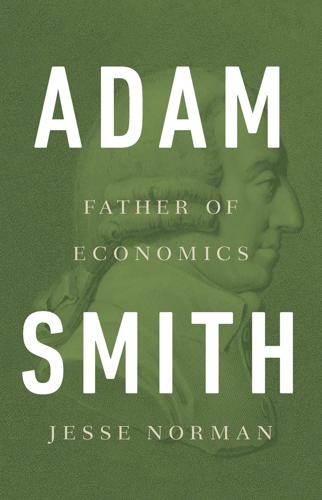
Adam Smith: Father of Economics
by
Jesse Norman
Published 30 Jun 2018
In specifying and emphasizing the machine-like aspects of systematic natural science, and starting to form them into a sophisticated account of scientific method, Smith went some way beyond Hume, and embarked on a line of thought that has had many imitators. Indeed, in the modern era the view has arisen that Newton’s scientific worldview was entirely mechanistic and deterministic, an account of the cosmos as working by clockwork which he regarded as closed, completed and the final truth. This suggestion has proven useful as a basis from which to argue against the existence of God; or, more recently, to draw comparisons with general equilibrium theories in economics, as we shall see.
…
Mr Market, 224–225, 228, 252 mutual sympathy, 62 My Own Life (Hume), 129–130 narco-capitalism, 263 Nash, John, 203 Nash equilibria, 299 natural philosophy, 18–19, 164–165 natural progress of liberty, 272 natural sciences, 44–46 natural selection, 170 natural theology, 73–74 natural theory of liberty, 105 See also system of natural liberty nature femininity of, 214 Hume on, 28 laws of, 45–46 state of, 77 See also human nature the Navigation Acts, 11, 100–101, 189, 278 Nelson, Julie, 216–217 neoliberalism, 220–221, 245, 323 The New Atlantis (Bacon), 164 Newton, Isaac, 19, 25 Maclaurin on, 39 method of, Smith, A., on, 43 Principia Mathematica by, 28, 46, 165, 167 scientific worldview of, 45–46 Newtonianism, 43 No Free Lunch, 225, 251 the noble savage, 65 norm-formation, 309–311 norms anti-social, 308 ethical, 298 in justice, 222–223, 236 of markets, 223, 237 moral, 147, 170, 308 social, 146–147 in social contract, 296 theory of, 295–300 values and, 230 North (Lord), 138–139 Oakeshott, Michael, 26 “Of Rhetoric” (Hume), 41 “Of the Protestant Succession” (Hume), 90–91 Offer, Avner, 305–306 On the Definition of Political Economy (Mill), 200 On the Duty of Man and Citizen (Pufendorf), 74–75 On the Spirit of Laws (Montesquieu), 74, 292 Ostrom, Elinor, 215 Oswald, James, 6–7, 9–10, 81 Oxford, 22–26, 30, 98–99 Oyster Club, 136–137 Pareto, Vilfredo, 194 Pareto optimality, 194 Peel, Robert, 122 personal morality, 318 Phaedo (Plato), 131 philosopher, Smith, A., as, 190 philosophy.
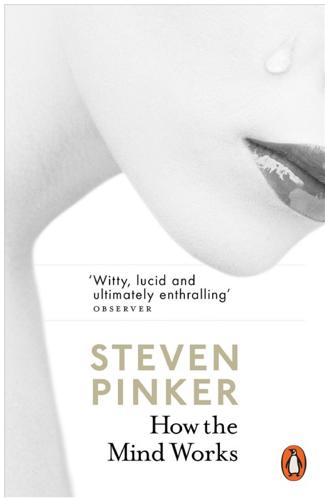
How the Mind Works
by
Steven Pinker
Published 1 Jan 1997
The DNA inside the testes and ovaries cannot peer outside and considerately mutate to make fur when it’s cold and fins when it’s wet and claws when there are trees around, or to put a lens in front of the retina as opposed to between the toes or inside the pancreas. That is why a cornerstone of evolutionary theory—indeed, a cornerstone of the scientific worldview—is that mutations are indifferent overall to the benefits they confer on the organism. They cannot be adaptive in general, though of course a tiny few can be adaptive by chance. The periodic announcements of discoveries of “adaptive mutations” inevitably turn out to be laboratory curiosities or artifacts.
…
. … Natural selection could only have endowed savage man with a brain a few degrees superior to that of an ape, whereas he actually possesses one very little inferior to that of a philosopher. Wallace’s paradox, the apparent evolutionary uselessness of human intelligence, is a central problem of psychology, biology, and the scientific worldview. Even today, scientists such as the astronomer Paul Davies think that the “overkill” of human intelligence refutes Darwinism and calls for some other agent of a “progressive evolutionary trend,” perhaps a self-organizing process that will be explained someday by complexity theory. Unfortunately this is barely more satisfying than Wallace’s idea of a superior intelligence guiding the development of man in a definite direction.
…
First, if the mind is a system of organs designed by natural selection, why should we ever have expected it to comprehend all mysteries, to grasp all truths? We should be thankful that the problems of science are close enough in structure to the problems of our foraging ancestors that we have made the progress that we have. If there were nothing we were bad at understanding, we would have to question the scientific worldview that sees the mind as a product of nature. Cognitive closure should be true if we know what we are talking about. Still, one might have thought that the hypothesis was merely a daydream, a logical possibility that could go no further than late-night dorm-room bull sessions. McGinn’s attempt to identify the humanly unsolvable problems is an advance.
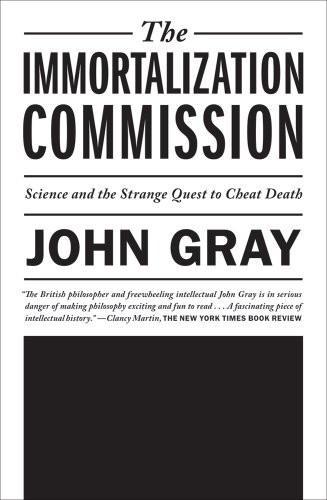
The Immortalization Commission: Science and the Strange Quest to Cheat Death
by
John Gray
Published 11 Apr 2011
Scientific naturalism is the theory that human beliefs are evolutionary adaptations whose survival has nothing to do with their truth. But in that case scientific naturalism is self-defeating, since on its own premises scientific theories cannot be known to be true. If Myers and the psychical researchers wanted to use science to undermine the existing scientific world-view, Balfour used science to put science in doubt. The problem of rational belief is not limited to religion. The basis of science is the empirical method, which uses the senses to build up a picture of the world; but science tells us that our senses have evolved to help us get by, not to show us the world as it is.
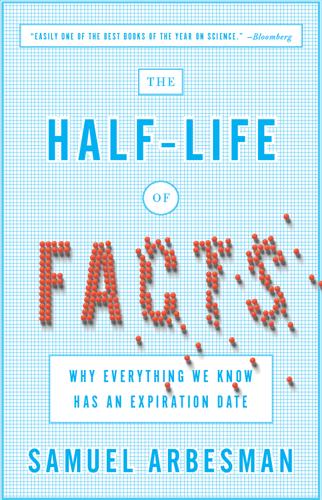
The Half-Life of Facts: Why Everything We Know Has an Expiration Date
by
Samuel Arbesman
Published 31 Aug 2012
Data are hoarded, scientists refuse to collaborate, and grudges can play a role in peer review. The human aspect of science plays an important role when it comes to the acceptance of new knowledge. We don’t always weigh the evidence for and against a new discovery or theory and then make our decision, especially if it requires a wholesale overhaul of our scientific worldview. Too often we are dragged, spouting alternative theories and contradictory data, to the new theoretical viewpoint. This can be very good. Having more than a few contrarians keeps everyone honest. But it can also be very bad, as when people irrationally hold onto ideas for too long, refusing to admit the errors of their ways.
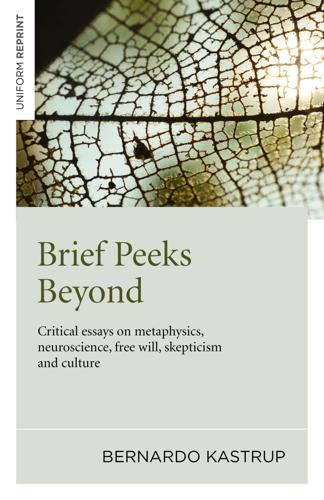
Brief Peeks Beyond: Critical Essays on Metaphysics, Neuroscience, Free Will, Skepticism and Culture
by
Bernardo Kastrup
Published 28 May 2015
Everything else – all abstractions, all conceptual frameworks – is provisional. We must never forget this, lest we totally lose our connection to reality. There are other ways in which consciousness is an anomaly under materialism in general, not only its rather absurd eliminative formulation. For instance, today’s scientific worldview requires that every property of a living system be explainable, at least in principle, by Darwinian evolution. In other words, if consciousness really exists – for instance, as an emergent property of the brain – it should play a role useful for survival. Otherwise, it is impossible to explain why it allegedly arose in the first place.
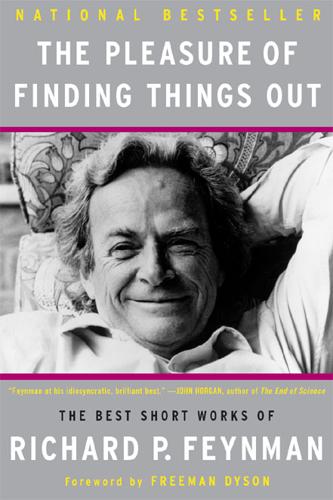
The Pleasure of Finding Things Out: The Best Short Works of Richard P. Feynman
by
Richard P. Feynman
and
Jeffrey Robbins
Published 1 Jan 1999
But you all know something about the wonders of science–it isn’t a popular audience I am talking to–so I won’t try to make you enthusiastic once again with the facts about the world: the fact that we are all made of atoms, the enormous ranges of time and space that there are, the position of ourselves historically as the result of a remarkable series of evolution. The position of ourselves in the evolutionary sequence; and further, the most remarkable aspect of our scientific worldview is its universality in this sense that although we talk about our being specialists, we are really not. One of the most promising hypotheses in all of biology is that everything the animals do or that living creatures do can be understood in terms of what atoms can do, that is, in terms of physical laws, ultimately, and the perpetual attention to this possibility–so far no exception has been demonstrated–has again and again made suggestions as to how the mechanisms actually occur.
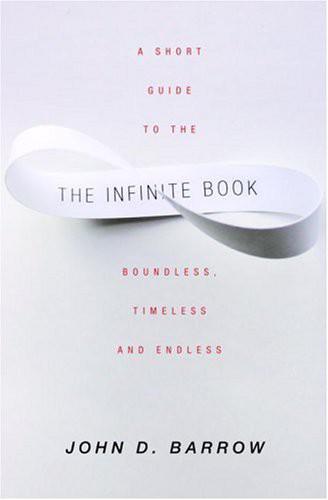
The Infinite Book: A Short Guide to the Boundless, Timeless and Endless
by
John D. Barrow
Published 1 Aug 2005
So, if all possible worlds exist and we are living in a simulation whose laws are not quite consistent with one another, does this make any difference? Indeed, should it make any difference?36 It will be rather de-motivating if you are a (simulated) scientist trying to understand the way the world works. Anything could happen without reason. Not surprisingly, simulated realities are not welcomed into the scientific world-view. Philosophers take them more seriously and some have even tried to use them as arenas to discuss ethics. The problems they spawn are unusual. Robin Hanson has suggested the possibility of being in a simulated reality might produce its own influences on how you should act.37 Simulated experiences, no matter how real they may seem, are much more likely to be brought to a sudden and unpredictable end than typical real experiences.
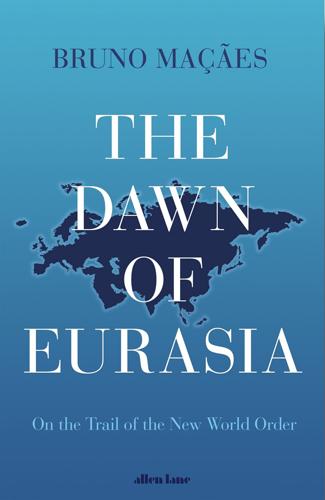
The Dawn of Eurasia: On the Trail of the New World Order
by
Bruno Macaes
Published 25 Jan 2018
Imitation as such never works, but if you imitate what your object of imitation is trying to repress about himself, perhaps you can get away with it. Perhaps you will be able to overcome while imitating. The best of both worlds, or so it must have seemed. Russian nationalists clearly understood that Western supremacy was based on a scientific worldview, a coherent system of ideas and technology, which could not be resisted by Western technology alone. Communism existed on the same plane and thus could be trusted to have the same propaganda value as Western liberalism. It offered, in any case, one other powerful advantage. It was an ideology that stressed the material and economic aspects of society above all others, and could thus be used by Russia to concentrate its energy on just that area where it needed to catch up with the West.
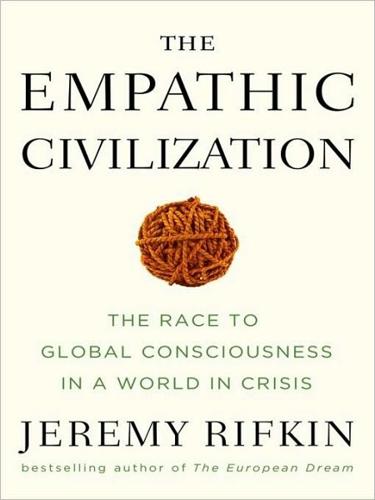
The Empathic Civilization: The Race to Global Consciousness in a World in Crisis
by
Jeremy Rifkin
Published 31 Dec 2009
The very notion of “composing” one’s thoughts conjures up the idea of well-thought-out linear progression of ideas, one following the other in logical sequence, a mode of thought very different from that in oral cultures, where redundancy and discontinuity in thought often are the rules. By eliminating the redundancy of oral language and making precise measurement and description possible, print laid the foundation for the modern scientific worldview. Phenomena could be rigorously examined, observed, and described, and experiments could be made repeatable with exacting standards and protocols, something that was far more difficult to achieve in a manuscript or oral culture. Print made possible universal literacy, preparing successive generations with the communication tools they needed to manage the complexities of the modern market and new ways of working and socializing.
…
Optics—telescopes and microscopes—also became a critical tool in the arsenal of scientists like Galileo, Kepler, Newton, and so on, in their probing of nature. Alan MacFarlane and Gerry Martin, in their book Glass: A World History, observe that glass inventions were pivotal in advancing the rational, scientific worldview that catapulted Western Europe into the Modern era and the Industrial Age. But while glass products helped deepen self-consciousness, extend the central nervous system, and create a more complex civilization, the entropy bill was staggering. Whole forests across Western and Northern Europe were decimated to fuel the glassworks industry.
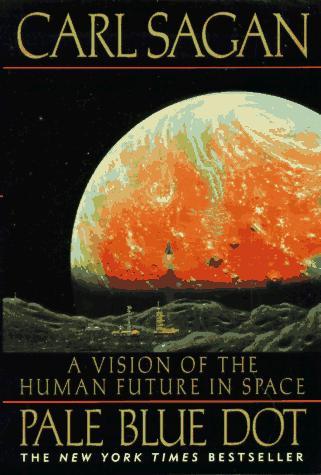
Pale Blue Dot: A Vision of the Human Future in Space
by
Carl Sagan
Published 8 Sep 1997
Uncommon strength of character is needed to resist the blandishments of those who assure us that we have an obvious, even God-given, superiority over our fellows. The more precarious our self-esteem, the greater our vulnerability to such appeals. Since scientists are people, it is not surprising that comparable pretensions have insinuated themselves into the scientific worldview. Indeed, many of the central debates in the history of science seem to be, in part at least, contests over whether humans are special. Almost always, the going-in assumption is that we are special. After the premise is closely examined, though, it turns out—in dishearteningly many cases—that we are not.
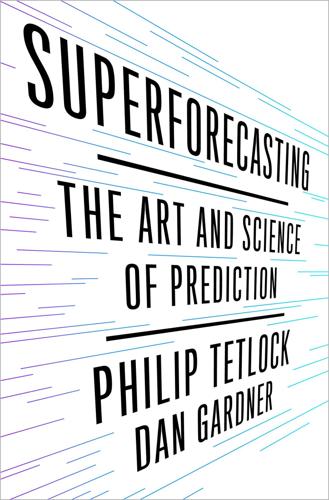
Superforecasting: The Art and Science of Prediction
by
Philip Tetlock
and
Dan Gardner
Published 14 Sep 2015
As much research shows, the ability to find it is a marker of a healthy, resilient mind. Among survivors of the 9/11 attacks, for example, those who saw meaning in the atrocity were less likely to suffer post-traumatic stress responses.28 But as psychologically beneficial as this thinking may be, it sits uneasily with a scientific worldview. Science doesn’t tackle “why” questions about the purpose of life. It sticks to “how” questions that focus on causation and probabilities. Snow building up on the side of a mountain may slip and start an avalanche, or it may not. Until it happens, or it doesn’t, it could go either way. It is not predetermined by God or fate or anything else.
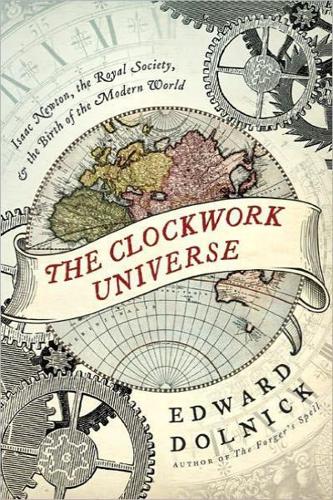
The Clockwork Universe: Saac Newto, Royal Society, and the Birth of the Modern WorldI
by
Edward Dolnick
Published 8 Feb 2011
The Society’s devotion to this innovative way of probing nature amounted to a call for people to think for themselves. That idea, which seems like the merest common sense to us, struck onlookers at the time as dangerous and obviously misguided. It’s always the case that history is a tale told by the victors. But the triumph of the scientific worldview has been so complete that we’ve lost more than the losing side’s version of history. We’ve lost the idea that a view different from ours is even possible. Today we take for granted that originality is a word of praise. New strikes us as nearly synonymous with improved. But for nearly all of human history, a new idea was a dangerous idea.
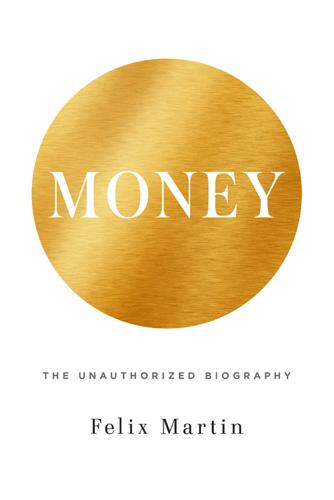
Money: The Unauthorized Biography
by
Felix Martin
Published 5 Jun 2013
It was a revolution in man’s understanding of the physical universe: nothing less than “the emergence of abstract rational thought, of philosophy and scientific theory in a form still recognizable to modern practitioners.”6 Precisely because of its extreme backwardness relative to the ancient civilisations of Mesopotamia and Egypt, it was in the Greek Aegean, and within only decades of the transition from an entirely illiterate culture, that the modern scientific worldview was invented. But it was not only man’s understanding of the physical universe that the fertile encounter between the sophisticated East and the primitive West revolutionised: it profoundly changed his understanding of the social world as well. The organisation of society on earth was traditionally conceived of as the mirror image of the divine household in the heavens above.
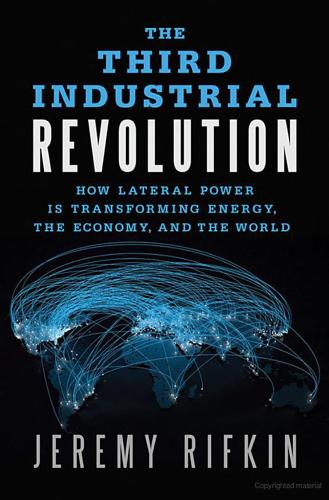
The Third Industrial Revolution: How Lateral Power Is Transforming Energy, the Economy, and the World
by
Jeremy Rifkin
Published 27 Sep 2011
If technology, like art, imitates life, the new networked infrastructure of the TIR economy comes more and more to imitate the workings of the natural ecosystems of the planet. Creating economic, social, and political relationships that mimic the biological relationships of the ecosystems of the Earth is a critical first step in re-embedding our species into the fabric of the larger communities of life in which we dwell. A new scientific worldview is emerging whose premises and assumptions are more compatible with the network ways of thinking that underlie a Third Industrial Revolution economic model. The old science views nature as objects; the new science views nature as relationships. The old science is characterized by detachment, expropriation, dissection, and reduction; the new science is characterized by engagement, replenishment, integration, and holism.
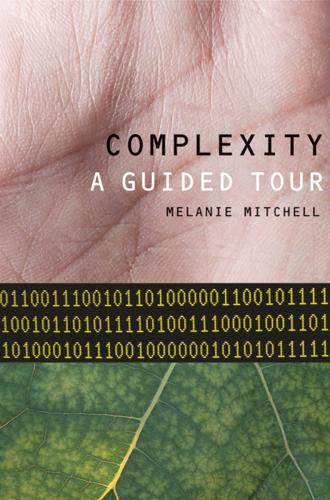
Complexity: A Guided Tour
by
Melanie Mitchell
Published 31 Mar 2009
Throughout this book we have seen how the concepts of information and computation are being extended to encompass living systems and even complex social systems; how the notions of adaptation and evolution have been extended beyond the biological realm; and how the notions of life and intelligence are being expanded, perhaps even to include self-replicating machines and analogy-making computer programs. This way of thinking is progressively moving into mainstream science. I could see this clearly when I interacted with young graduate students and postdocs at the SFI summer schools. In the early 1990s, the students were extremely excited about the new ideas and novel scientific worldview presented at the school. But by the early 2000s, largely as a result of the educational efforts of SFI and similar institutes, these ideas and worldview had already permeated the culture of many disciplines, and the students were much more blasé, and, in some cases, disappointed that complex systems science seemed so “mainstream.”
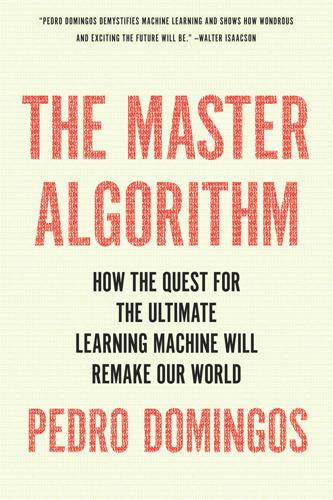
The Master Algorithm: How the Quest for the Ultimate Learning Machine Will Remake Our World
by
Pedro Domingos
Published 21 Sep 2015
If you’re a scientist or engineer, machine learning is a powerful armory that you don’t want to be without. The old, tried-and-true statistical tools don’t get you far in the age of big (or even medium) data. You need machine learning’s nonlinear chops to accurately model most phenomena, and it brings with it a new scientific worldview. The expression paradigm shift is used too casually these days, but I believe it’s not an exaggeration to say that that’s what this book describes. If you’re a machine-learning expert, you’re already familiar with much of what the book covers, but you’ll also find in it many fresh ideas, historical nuggets, and useful examples and analogies.
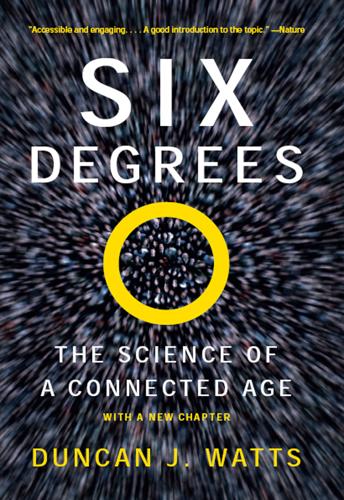
Six Degrees: The Science of a Connected Age
by
Duncan J. Watts
Published 1 Feb 2003
Sometimes individuals exert so profound an effect that their influence truly seems to have been guaranteed. When Einstein’s original paper on special relativity was published in 1905, it overturned the scientific order of the past three hundred years, and from that moment on, Einstein’s greatness was assured. Descartes and Newton also single-handedly revolutionized the scientific worldviews of their times—Descartes with analytical geometry and Newton with his universal theory of gravitation. Sometimes, in other words, a profound outcome implicates an equally profound cause. Breakthroughs of this nature, however, are exceedingly rare, and most social and scientific change is not wrought by giant cognitive leaps of singular genius.
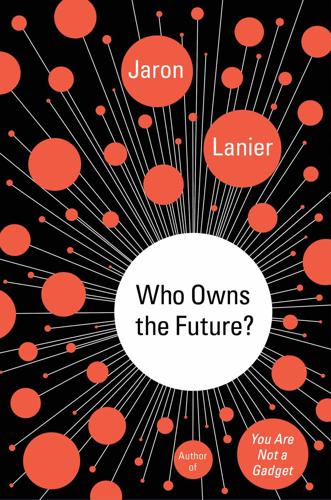
Who Owns the Future?
by
Jaron Lanier
Published 6 May 2013
All thoughts about consciousness, souls, and the like are bound up equally in faith, which suggests something remarkable: What we are seeing is a new religion, expressed through an engineering culture. What I would like to point out, though, is that a great deal of the confusion and rancor in the world today concerns tension at the boundary between religion and modernity—whether it’s the distrust among Islamic or Christian fundamentalists of the scientific worldview, or even the discomfort that often greets progress in fields like climate change science or stem-cell research. If technologists are creating their own ultramodern religion, and it is one in which people are told to wait politely as their very souls are made obsolete, we might expect further and worsening tensions.
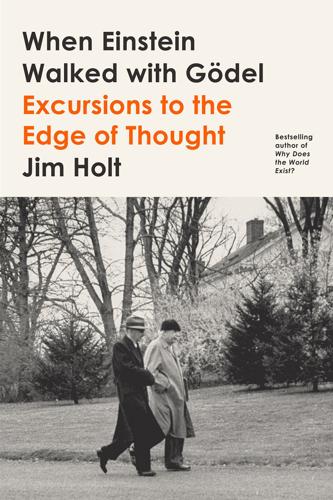
When Einstein Walked With Gödel: Excursions to the Edge of Thought
by
Jim Holt
Published 14 May 2018
What possessed him to write a consciousness-raising mathematical satire like Flatland—his only book still in print—is not really known. As a progressive educator, he might have wished to shake up the English mathematics curriculum, with its dreary emphasis on the memorization of long proofs from Euclid. And, as a modern-minded churchman, he was no doubt attracted to the challenge of reconciling the spiritual and scientific worldviews. Abbott’s doorway to higher dimensions was the method of analogy. We cannot readily picture to ourselves a space with one more dimension than our three-dimensional world. We can, however, imagine a space with one less dimension: a plane. Suppose there were a society of two-dimensional creatures confined to a planar world.
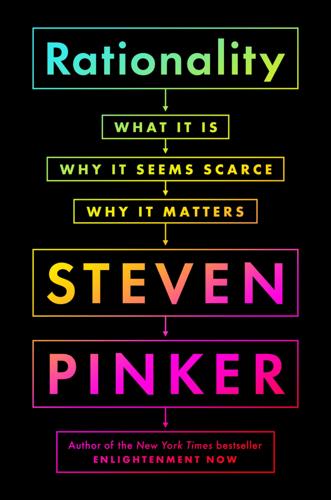
Rationality: What It Is, Why It Seems Scarce, Why It Matters
by
Steven Pinker
Published 14 Oct 2021
Now, before looking at the data, one cannot blow off the possibility of a hot hand on the grounds of causal plausibility in the way one can blow off the gambler’s fallacy. Unlike a roulette wheel, a player’s body and brain do have a memory, and it is far from superstitious to think that a spurt of energy or confidence might persist over a span of minutes. So it was not a breach of the scientific worldview when other statisticians took a second look at the data and concluded that the boffins were wrong and the jocks were right: there is a hot hand in basketball. The economists Joshua Miller and Adam Sanjurjo showed that when you select streaks of hits or misses from a long run of data, the outcome of the very next attempt is not statistically independent of that streak.

Sorting Things Out: Classification and Its Consequences
by
Geoffrey C. Bowker
and
Susan Leigh Star
Published 25 Aug 2000
Scientists can only deal with data as presented to them by their information base just as historians of previous centuries must rely heavily on written traces. When creating a new information infrastructure for an old activity, questions have a habit of running away from one. A technical issue about how to code process can become a challenge to organizational theory and its database. A defense of process can become an attack on the scientific world-view. Susan Grobe, a nursing informatician, has made one of the chief attacks on the NIC scheme. She believes that rather than standardized nursing language, computer scientists should develop natural language processing tools so that nurse narratives can be interpreted. Grobe argues for the abandonment of any goal of producing “a single coherent account of the pattern of action and beliefs in science” (Grobe 1992, 92).
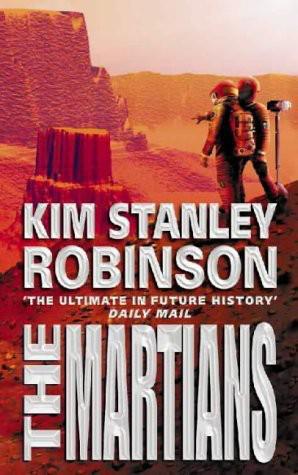
Martians
by
Kim Stanley Robinson
Published 6 Jul 1999
And yet his whole life physics had been getting more and more complicated, with postulated microdimensions taken as fact, and symmetries of fairly simple but scarily small strings invoked as explanations even though they were many magnitudes of size smaller than could ever be observed—the unobservability was itself mathematically provable. Thus the search for a final unifying theory was, as Lindley noted, a kind of religious quest; or the messianic movement in the religion that the scientific worldview had become. Then he met Bao Shuyo. Over a winter in Da Vinci Bao took him through the latest in superstring theory, step by step. The idea of extra microdimensions was straightforward. There were seven extra dimensions but all very small, and arranged in a thing called the “seven sphere.”
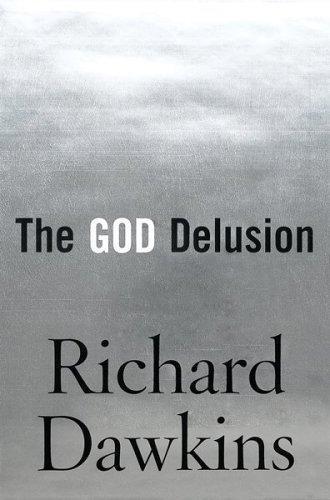
The God Delusion
by
Richard Dawkins
Published 12 Sep 2006
He was too intelligent not to recognize the head-on collision between his religion and his science, and the conflict in his mind made him increasingly uneasy. One day, he could bear the strain no more, and he clinched the matter with a pair of scissors. He took a bible and went right through it, literally cutting out every verse that would have to go if the scientific world-view were true. At the end of this ruthlessly honest and labour-intensive exercise, there was so little left of his bible that, try as I might, and even with the benefit of intact margins throughout the pages of Scripture, I found it impossible to pick up the Bible without it being rent in two.
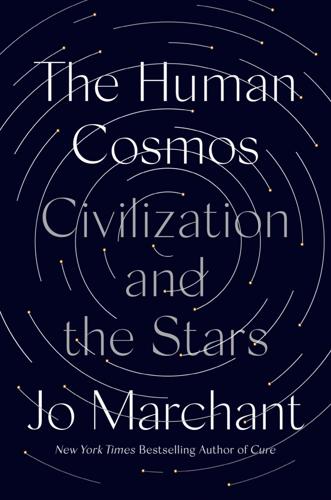
The Human Cosmos: A Secret History of the Stars
by
Jo Marchant
Published 15 Jan 2020
The clocktower still stands today, and North has pointed out that its great medieval bell is about the right size to have once belonged to the abbey, and that its inscription, Missi de celis habeo nomen Gabrielis (“I am heaven sent, in Gabriel’s name”), suggests it came from a church. The sound of Richard’s clock may ring out still. Certainly, the implications of the technology Richard pioneered still resonate through the modern world. The social and philosophical changes inspired by mechanical clocks helped to create the scientific worldview that defines modern Western society, as well as driving the breathtaking economic and technological advances that propelled Europe out of the doldrums of the Middle Ages and allowed it to dominate the planet. Meanwhile, these self-turning machines caused one more fundamental split with the universe that we inhabit.
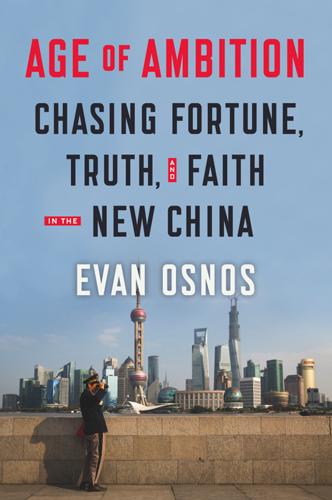
Age of Ambition: Chasing Fortune, Truth, and Faith in the New China
by
Evan Osnos
Published 12 May 2014
Unlike the public denunciations and confrontations of the 1960s and ’70s, the Party was encouraging people to celebrate their “Red birthday” (the anniversary of the day they joined), and every member was expected to write a two-thousand-word self-evaluation. The market sensed an opportunity, and soon there were websites offering to sell “model” self-evaluations. They came drafted with the requisite apologies, such as “I didn’t pay enough attention to establishing a scientific worldview.” My journalist friend who joined the Party while in college tried to write her own self-evaluation, but when she read it aloud at the monthly meeting, she was criticized for failing to include the approved phrases, so she went back to the standard list. In the seven years I had been gone, the language had changed.

Sorting Things Out: Classification and Its Consequences (Inside Technology)
by
Geoffrey C. Bowker
Published 24 Aug 2000
Scientists can only deal with data as presented to them by their information base just as historians of previous centuries must rely heavily on written traces. When creating a new information infrastructure for an old activity, questions have a habit of running away from one. A technical issue about how to code process can become a challenge to organizational theory and its data base. A defense of process can become an attack on the scientific world-view. Susan Grobe, a nursing informatician, has made one of the chief attacks on the N I C scheme. She believes that rather than standardized nursing language, computer scientists should develop natural language processing tools so that nurse narratives can be 2 74 Chapter 8 interpreted . Grobe argues for the abandonment of any goal of pro ducing "a single coherent account of the pattern of action and beliefs in science" (Grobe 1 992, 92).
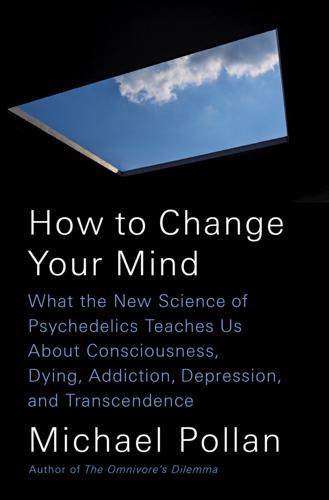
How to Change Your Mind: What the New Science of Psychedelics Teaches Us About Consciousness, Dying, Addiction, Depression, and Transcendence
by
Michael Pollan
Published 30 Apr 2018
Yet even to questions of this kind Griffiths brings an open and curious mind. “The phenomenology of these experiences is so profoundly reorganizing and profoundly compelling that I’m willing to hold there’s a mystery here we can’t understand.” Griffiths has clearly traveled a long way from the strict behaviorism that once informed his scientific worldview; the experience of alternate states of consciousness, both his own and those of his volunteers, has opened him to possibilities about which few scientists will dare speak openly. “So what happens after you die? All I need is one percent [of uncertainty]. I can’t think of anything more interesting than what I may or may not discover at the time I die.
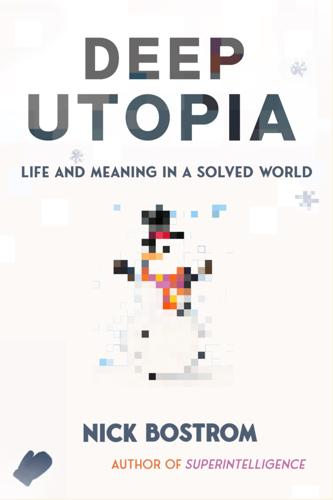
Deep Utopia: Life and Meaning in a Solved World
by
Nick Bostrom
Published 26 Mar 2024
* * * Let us suppose—for the sake of the argument—that you are neither Napoleon nor any other world-historical figure, nor yet any (other?) sufficiently rare form of lunatic. Is there then any possibility that you could still somehow be contributing a humanly-noticeable fraction of the interestingness of the world? I think there is such a possibility, though it requires a departure from the standard contemporary scientific worldview. We would have to consider more esoteric possibilities—ones that reduce the field of competition, from the infinite number of people that exist in a Big World, down past the billions of humans that we normally assume to have entered existence, down further to some still smaller and more manageable number.160 You might, for example, entertain a solipsistic speculation.
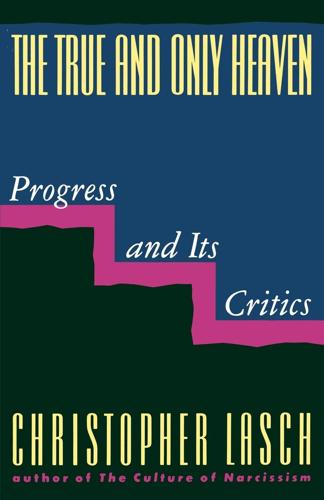
The True and Only Heaven: Progress and Its Critics
by
Christopher Lasch
Published 16 Sep 1991
He was one of the first to see, even while the Victorian faith in science was still running high, that science would never be able to offer a worldview to replace discredited religions. In another early essay, misleadingly entitled "The Will to Believe," James explored the shortcomings of science with the same insight he had brought to the shortcomings of art. * The scientific worldview, he argued, seemingly so "healthy" and "robustious," so "rugged and manly" in its respect for facts, actually concealed a childish desire for certainty. The longing for deliverance from doubt, enshrined in the epistemological tradition of modern philosophy as the distinction between certitude and mere "opinion," had to be regarded not as the beginning of wisdom but as the product of a "weakness of our nature from which we must free ourselves, if we can."
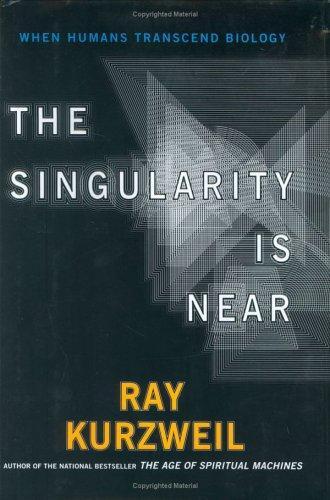
The Singularity Is Near: When Humans Transcend Biology
by
Ray Kurzweil
Published 14 Jul 2005
Every day we hear reports about the experiences of others, and we may even feel empathy in response to the behavior that results from their internal states. But because we're exposed to only the behavior of others, we can only imagine their subjective experiences. Because it is possible to construct a perfectly consistent, scientific worldview that omits the existence of consciousness, some observers come to the conclusion that it's just an illusion. Jaron Lanier, the virtual-reality pioneer, takes issue (in the third of his six objections to what he calls "cybernetic totalism" in his treatise "One Half a Manifesto") with those who maintain "that subjective experience either doesn't exist, or is unimportant because it is some sort of ambient or peripheral effect."11 As I pointed out, there is no device or system we can postulate that could definitively detect subjectivity (conscious experience) associated with an entity.
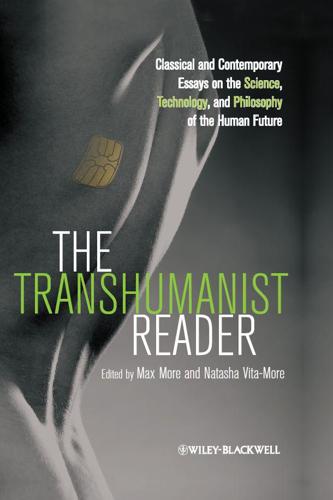
The Transhumanist Reader
by
Max More
and
Natasha Vita-More
Published 4 Mar 2013
According to our best scientific understanding, it seems that the dead stay dead, but if we live in a simulation, the Mind can copy us before we die and paste us in a new, perhaps better, simulation. III. Conclusion I am the first to admit that this is a mythology and not a scientific theory. I believe it is a mythology compatible with rationality and the scientific worldview. Modern science says that reality, at a fundamental level, is much weirder than our simple, intuitive models, and lets us glimpse at vague and veiled shadows of wonderful things in heaven and earth. If anything, I am persuaded that reality may be much weirder than mythology. Many transhumanists with an ultra-rationalist approach have a very hard time considering parallels between transhumanism, spirituality, and/or religion.

Iron Curtain: The Crushing of Eastern Europe, 1945-1956
by
Anne Applebaum
Published 30 Oct 2012
One such spectacle took place in a school theater in Wittenberg: students who refused to join the FDJ or insisted upon going to church were named, condemned, and expelled one by one, before the whole school. Many left the stage weeping.33 In 1954, the state would even introduce the Jugendweihe, a secular alternative to Protestant confirmation services, a ceremony that was supposed to impart to young people “useful knowledge in basic questions of the scientific world-view and socialist morality … raising them in the spirit of socialist patriotism and proletarian internationalism, and helping them to prepare themselves for active participation in the construction of developed socialist society and the creation of the basic preconditions for the gradual transition to communism.”
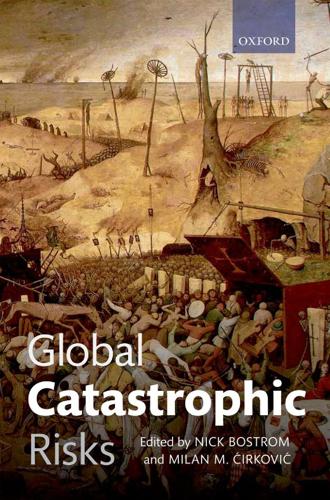
Global Catastrophic Risks
by
Nick Bostrom
and
Milan M. Cirkovic
Published 2 Jul 2008
Since the advent of the Nuclear Age, one apocalyptic threat after another, natural and man-made, has been added to the menu of ways that human history could end, from environmental destruction and weapons of mass destruction, to plague and asteroid strikes (Halpern, 2001; Leslie, 1998; Rees, 2004). In a sense, long-term apocalypticism is also now the dominant scientific worldview, insofar as most scientists see no possibility for intelligent life to continue after the Heat Death of the Universe (2002, Ellis; see also the Chapter 2 in this volume) . Millennia/ tendencies in responses to apocalyptic threats 79 4.5 Contemporary techno-millennialism 4. 5 . 1 The s i n gu l a rity a n d tech n o - m i llen n ia l i s m Joel Garreau's (2006) recent book on the psychoculture of accelerating change, Radical Evolution: The Promise and Peril of Enhancing Our Minds, Our Bodies - and What It Means to Be Human, is structured in three parts: Heaven, Hell and Prevail.
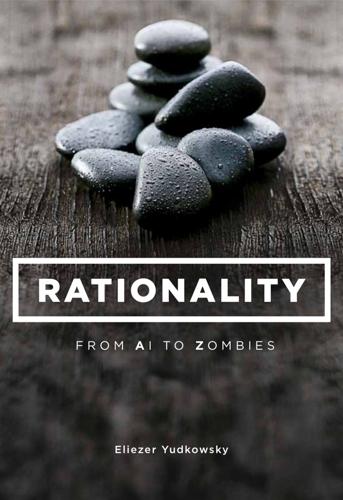
Rationality: From AI to Zombies
by
Eliezer Yudkowsky
Published 11 Mar 2015
The first three introduce the question of how the human world relates to the world revealed by physics: “Lawful Truth” (on the basic links between physics and human cognition), “Reductionism 101” (on the project of scientifically explaining phenomena), and “Joy in the Merely Real” (on the emotional, personal significance of the scientific world-view). This is followed by two sequences that go into more depth on specific academic debates: “Physicalism 201” (on the hard problem of consciousness) and “Quantum Physics and Many Worlds” (on the measurement problem in physics). Finally, the sequence “Science and Rationality” and the essay A Technical Explanation of Technical Explanation tie these ideas together and relate them to scientific practice.